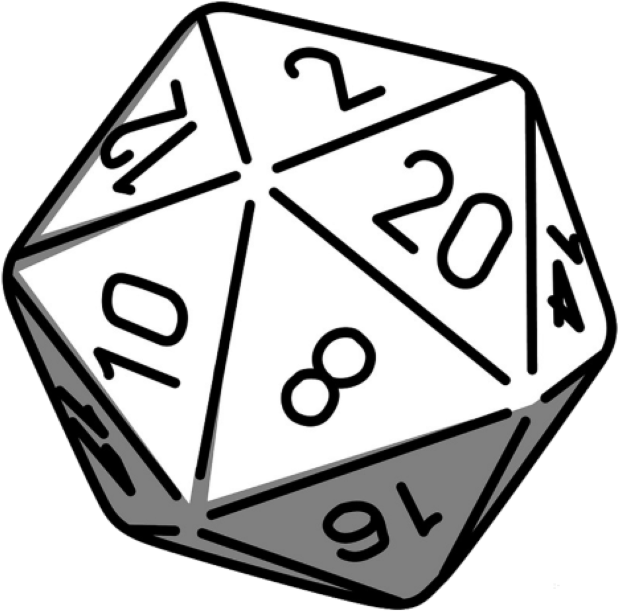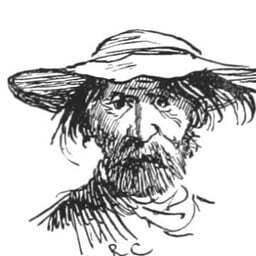Hello everyone. Im looking for a simple system that can be played by something like 3-5 people, which is simple enough to be played by an 11 year old. My sister is in her Harry Potter phase so magic and fantasy wizard setting is really helpful. I need it to be simple enough where I can teach it to my family in a night, and we can get right into whatever story I end up DMing (for the first time) for them. I really want to spend some time with my sister over the summer engaging her imagination.
Suggestions please :D
Edit: you people are wonderful, I’ll check all your suggestions out for sure!
Mausritter is a mix of some easy systems, very “kid friendly”, it actually won some awards because of it. The Tiny D6 systems are also good and easy to learn: two dice, if you have an attribute that helps, use three.
Mausritter is also great at getting people into the “old school” adventuring mindset. It’s easy for people to get that they’re a tiny moues, so they need to be careful, be clever, and run away from dangerous situations.
Plus it’s got fantastic first and third party adventures to run.
Might not be sufficiently fantasy magic for the brief though?
That’s a pretty good point. Time to read it again! (and this time I’ll play it)
If you’d like to play in a Harry Potter like setting, check out Kids on Brooms.
Extra simple and perfect for a one shot or two: Definitely Wizards
Not quite as simple but I adore this game (free demo on the page): Wanderhome
Edit: just found out Wanderhome is included in this huge TTRPG bundle right now.
At 11 years old any system can work already. If she is interested, D&D or any other mainstream system will work just fine. You just have to guide them through character creation more. Probably limit some choices or even come with pre-created character sheets they can choose from.
But if you want something simple the Core Micro system would work. It’s free and you can download it on itch https://as-if.itch.io/core-micro The rules are very open and can be used for any setting. The stats determine how many dice you roll and you just give them the target number. Depending on how close to the target they are, they will succeed or fail with either something positive or negative happening on top of it.
With a little homebrew, you could even turn it into a Harry Potter setting. Just add an additional 7 attributes that are named after the Harry Potter spell types (Charm, Jinx, Hex, etc.). And then she can either use traditional attributes for checks or magic. Which has the added benefit of giving her always 2 chances to succeed. For example, she has to jump across a gap. If she fails her Grace check and is falling she can still make a Transfiguration spell check to see if she can build a bridge out of something nearby.
And the skill list is already intended to be expanded upon, so you can add stuff like Quidditch, Potion Brewing, or Rune studies.Tunnel Goons might be a good fit. Extremely easy to pick up and play, endlessly mod-able and flexible. No wizards or magic out of the box, but would be easy to hack in (could even steal from my next suggestions).
Maze Rats is another super simple, quick to pick up system. If you choose to have magic at character creation, you get to a roll a random spell name each day and then decide what it actually does when you go to cast it.
The Black Hack (or a physical copy) is a nice, rules light take on classic d20 fantasy adventuring, complete with the traditional classes of Warrior, Thief, Cleric, and Wizard. Traditional DnD-ish spell memorization and casting.
Macchiato Monsters is a more flexible, open ended game based on the above suggestion (with some Whitehack mixed in). More flexible magic where you can create your own spells to do whatever you can imagine. A bit more work on the GM’s side (although I’ve actually written a little guide to help with that).
And if I can briefly self promo: Brighter Worlds (or the online SRD) is my own game, in part based on games like Cairn and Electric Bastionland, designed to have a simple core system and modular add-ons for each of the different character classes. It’s got a whimsical, magical, vibe and a lot of different options for what players might want to be doing (including several different ways to engage with magic). Might have a few more moving parts than you’re currently looking for though.
check out https://www.adventure.game/
I tend to have a few standard recommendations for requests like this, but some don’t necessarily fit as well with the wizard-centered setting you’re suggesting.
The ones I think might fit best include:
Little Wizards - (also in paperback ) This is almost exactly what you are asking for: Characters are young magicians in a relatively mundane world. Might be stretched slightly to run Harry Potter or Kiki’s Delivery Service type of setting. The art is colorful and evocative. In the game system failure can cause setbacks and require new solutions to problems, but total defeat or death is not specifically represented.
Risus – A very simple, very general system, not attached to one particular genre or setting. Some adventures here. You could easily use it to run many types of games. The author also has a lot of advice on running a game here.
Folklore: A Rules-Light Roleplaying Game - Another simple, universal game that can probably do any genre. At only four pages (pamphlet sized) this is one of the shortest, simplest. But pretty much no existing material for it.
Hero Kids - Cheap, relatively simple fantasy roleplaying game. Mostly for tactical play. Should work pretty well with kids who are into miniatures or board games. Many character choices and adventures. Probably not closer to Harry Potter type themes, but it does have several types of magicians.
Also, only mentioning the following in case you need something really closer to regular D&D rules, but simpler than standard 5th Edition D&D:
Swords & Wizardry - This is a clone of an earlier version of D&D, but with things cleaned up and made more elegant and clear. There are different editions of this game, tailored to the amount of additional information and detail folks want.
Old-School Essentials - This is another game designed in a similar way, but based on a different earlier edition of D&D.
Seconding Hero Kids. My 7 and 10 year olds love it and it’s easy to expand on if it’s a bit too simplistic.
Kids on Brooms is a variant of Kids on Bikes https://www.huntersentertainment.com/kidsonbikesrpg that’s basically a very free-form RPG system. Kids on Bikes has a very Stranger Things feel, whereas Kids on Brooms is basically a Harry Potter RPG. It’s much more rules light than D&D and is more of a cooperative story telling session than a strictly rules driven session.
Mausritter, Carin, and DURF would work well for this.
Mausritter is based on Into the Odd and features cute mice exploring a world of giant proportions.
Carin is also based on Into the Odd and is more straight forward fantasy.
DURF is really simple and fast. It’s really quick to make a character and get to playing.
Maybe Fate Accelerated? You can jump right in, just pick a High Concept (What the character is mainly about), maybe a Trouble and approaches (how you approach problems) and leave the rest to fill in. You have Fate points, which you spend to improve rolls and which you get by getting into trouble / adventure. The players have more ability to affect the story than in D&D, and is usually easier to get into for beginners than for experienced rpg players - check Book of Hanz for tips.






